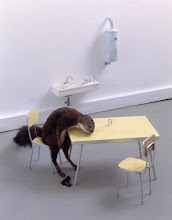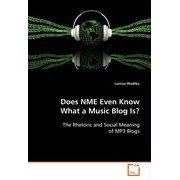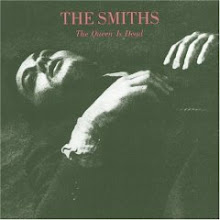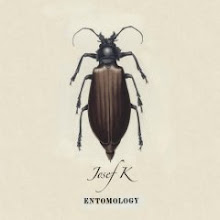
As I'm sure I mentioned in previous posts, I was an English major for my Honours BA, and as much as I found math and science relatively easy and comforting in their right/wrong answers, I've always found the arts more inspiring and generally more interesting for my understanding of the world. And oddly enough, taking English as a major forces you to contend with several other areas in the process, whether it be 18th century medicine or Aristotelian philosophy. By reading one novel, you can end up with knowledge of humanity, history, morality, economics and society. As much as I often bitch about picking apart a book until I no longer like the book at all, I have learned and formed a worldview that I would say is largely dependent on the books I've read.
I started reading on my own (no one can remember teaching me) when I was around three years old, and it just seemed completely natural. As soon as I could talk, I had already been inventing stories from the pictures I found in books, which gave the impression that I was reading to passersby in bookstores, but once I had discovered how to make sense of the words already there, I found a whole new world. My Grade One teacher named me The Library Lady and had me read to the rest of the class on a regular basis, showing me the power of literacy. I never had a shortage of books growing up, and thus, I never had a shortage of places I could visit. I read classics alongside modern novels, and I read guides to plants, animals, and minerals. I pretended that I was living in a little house on the prairies, or in a boxcar, or on my side of the mountain. I conversed with moles and toads, griffins and mock turtles, Indians in the cupboard and mice on motorcycles, and even moomins. I believed that I could be a writer like Emily of New Moon, or a spy like Harriet, or run away from camp like Rudy Miller. I went back to times of derring-do with Robin Hood, The Three Musketeers, Ivanhoe and The Scarlet Pimpernel, and much later, I found my way through medieval romances, gothic horrors and Enlightenment treatises, Situationist texts and Chomsky.
Over the past summer, I read books on topics ranging from the history of the Tower of Pisa to the gin craze of the 18th century to the history of the Basque people, and that was the light reading to distract me from the heavier stuff I was dealing with while writing my MA thesis. Books have not only transported me other places and times, but they have also given me the foundation and context for the places I've experienced firsthand. So, Shakespeare's Richard III was probably Tudor propaganda, but that in itself matters, and it also made me feel the meaning of Bosworth Battlefield beneath my feet four years ago, much more salient than if some tour guide had told me about it. I also firmly believe that my sense of humour and comedic timing came just as much from Gordon Korman as it did from Bugs Bunny.
I was just reminded of how fantastic books are last night as our power had to be cut off from 11:30 pm til the next morning (one of the reasons this post is late). In the absence of all else, I could entertain myself for hours just by reading by candlelight - simple and wonderful. And so books have always been alive for me. They have been loyal companions and made just about everything seem possible. And libraries and bookstores continue to be places of refuge for me, where I can meander and browse, deliberately seeking out those more obscure books spined in amongst the "popular" books that receive a facing. When I worked at a bookstore, I made a point of facing books that never usually get to be because of their initial low quantities (my problem with bookselling practices can be dealt with at a later date). Just because upper management decided that Breakfast on Pluto wasn't an important read, and thus not a good seller, it doesn't mean it shouldn't get a fair shot against the pathetic likes of Danielle Steel and Nora Roberts - I wanted to give a chance to the decent books that actually say something.
Because of my love for language and the written word, I've also always gravitated towards those musical artists with strong lyrical content or some evidence that they, too, read books. I will also freely admit that I learned nearly as much from listening to the Manics (via the books they directed me to) as I have from some university courses. More and more educators are also beginning to realize the value in popular music and its interpretations of literature, making popular music a viable teaching tool, especially for youth. So, this week's mix is all about literature, featuring songs that either reinterpret a piece of literature, reference literature or reference an author. While researching a bit for this mix, I learned about several references I hadn't noticed before, which was definitely time well-spent. (Random tangent: I keep hearing part of ABC's The Look of Love near the end of Patrick Wolf's Tristan, and I often wonder if I'm the only one.) A good song is just as brilliant as a good book, and when they truly tell a brilliant story, whether original or borrowed, they demonstrate why a music collection can be referred to as a library. This mix is called Sight Reading.
My loathings are simple: stupidity, oppression, crime, cruelty, soft music. - Vladimir Nabokov
A man should hear a little music, read a little poetry, and see a fine picture every day of his life, in order that worldly cares may not obliterate the sense of the beautiful which God has implanted in the human soul. - Johann Wolfgang von Goethe
Gravity's Rainbow - Klaxons (Reference: Thomas Pynchon's Gravity's Rainbow)
Wild Boys - Duran Duran (Reference: William S. Burroughs' The Wild Boys)
Love and Destroy - Franz Ferdinand (Reference: Mikhail Bulgakov's The Master and Margarita)
1984 - David Bowie (Reference: George Orwell's 1984)
Song For Clay (Disappear Here) - Bloc Party (Reference: Bret Easton Ellis's Less Than Zero)
Tristan - Patrick Wolf (Reference: The Tristan Legend Cycle)
Atrocity Exhibition - Joy Division (Reference: JG Ballard's Atrocity Exhibition)
Venus in Furs - The Velvet Underground (Reference: Leopold von Sacher-Masoch's Venus in Furs)
Killing an Arab - The Cure (Reference: Albert Camus's The Stranger)
Albert Camus - Titus Andronicus
Day of the Triffids - Ash (Reference: John Wyndham's Day of the Triffids)
Lolita - Elefant (Reference: Vladimir Nabokov's Lolita)
My Iron Lung - Radiohead (Reference: Thomas Pynchon's The Crying of Lot 49)
R.P. McMurphy - Manic Street Preachers (Reference: Ken Kesey's One Flew Over the Cuckoo's Nest)
Rattlesnakes - Lloyd Cole and the Commotions (Reference: Joan Didion's Play It As It Lays)
Something Wicked - British Sea Power (Reference: William Shakespeare's Macbeth)
Cemetry Gates - The Smiths
Macbeth - John Cale (Reference: William Shakespeare's Macbeth)
A Picture of Dorian Gray - Television Personalities (Reference: Oscar Wilde's The Picture of Dorian Gray)
Golden Hair - Syd Barrett (Reference: James Joyce's "Poem V")
Billy Liar - The Decemberists (Reference: Keith Waterhouse's Billy Liar)
Wuthering Heights - Kate Bush (Reference: Emily Bronte's Wuthering Heights)
November Rain - Guns 'n Roses (Reference: Del James's "Without You")
A Drunken Man's Praise of Sobriety - Elvis Costello (Reference: William Butler Yeats's "A Drunken Man's Praise of Sobriety"
Sylvia Plath - Ryan Adams





















































2 comments:
I adore Ryan Adams and Sylvia Plath. nice mix here
Your blog is a constant source of delight to me... I don't remember the last time I've read something I agreed with more! Big literature fan over here... I'm a thwarted English student but in reality a sad biology major. I think about the intersection of music and words all the time and I often print out the lyrics to songs and force people to read along as I play songs to them! Cemetary Gates and Sylvia Plath are two of my favorite songs... great mix and even better writing. Keep it up, I'm a huge fan! :)
Post a Comment